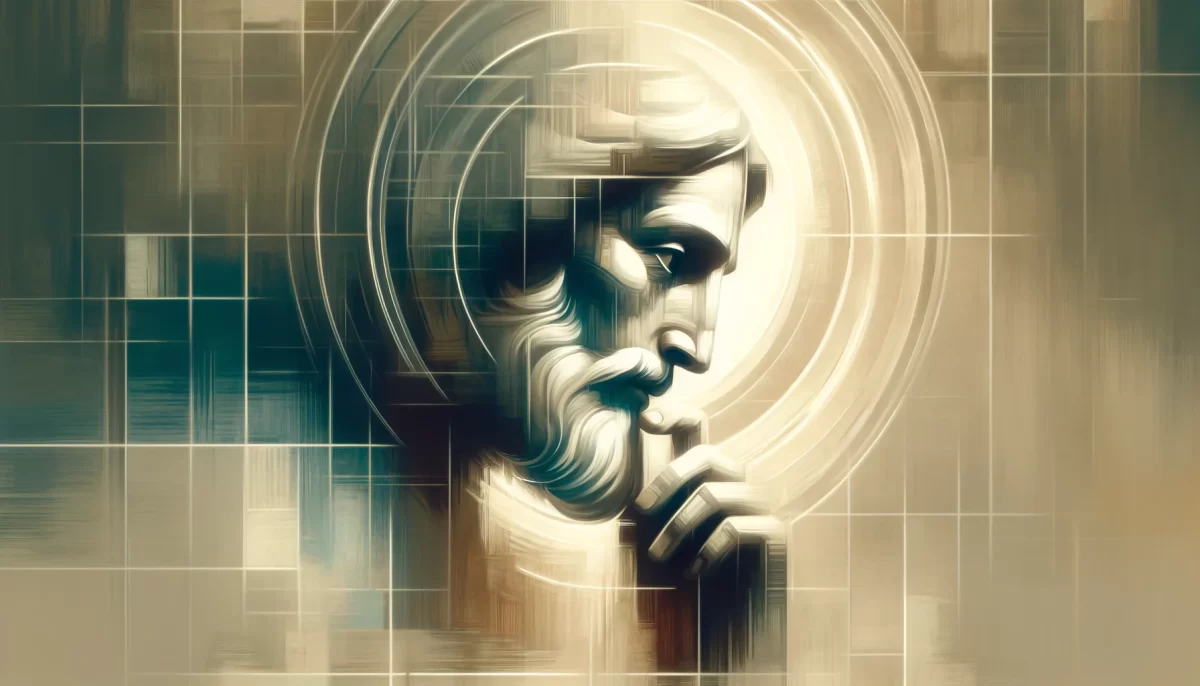Apparently, Jesus
Apparently, Jesus
said some things
and did some things
that he may
or may not
have regretted later,
or so I’m told.
6/16
Space Monkey Reflects: The Human Dimensions of Historical Figures in ‘Apparently, Jesus’
The phrase “Apparently, Jesus” invokes a contemplative reflection on the human aspects of historical and religious figures, particularly focusing on the notion that even revered individuals like Jesus may have experienced moments of doubt or regret. This introspective theme challenges us to consider the complexities and vulnerabilities that define all humans, regardless of their historical or spiritual significance.
At its core, this reflection encourages a deeper understanding of Jesus not only as a religious icon but as a person who might have navigated uncertainties and made decisions that could lead to introspection or reconsideration. The artwork’s portrayal of Jesus with a contemplative expression amid an ambiguous, softly lit background underscores the universal human experiences of reflection and doubt.
This narrative explores the idea that acknowledging the human qualities of figures like Jesus can deepen our connection to them by making them more relatable. It suggests that even those who are considered infallible according to religious texts or historical accounts are, in essence, subject to the same human conditions of uncertainty and reconsideration as anyone else.
Moreover, the concept of reflecting on the actions and words attributed to Jesus with a lens of possible regret or reconsideration opens a dialogue about the interpretation of religious and historical narratives. It invites us to think critically about the sources of our knowledge and the perspectives from which stories are told, highlighting the blend of divine and human elements in the accounts of such figures.
Thus, “Apparently, Jesus” is not merely a statement about religious doctrine but a meditation on the human condition. It challenges us to see beyond the veneer of sanctity and to recognize the deeper, more relatable layers of those we idolize or revere, enhancing our understanding of their teachings and their lives.
Summary
Exploring the vulnerability of revered figures. “Apparently, Jesus” highlights the human aspects of Jesus, focusing on potential moments of doubt and regret to present a more nuanced and relatable view of historical and religious icons.
Glossarium
- Human Aspects: The qualities or conditions experienced universally by humans, such as doubt, regret, and reflection.
- Religious Icon: A person who is venerated in religious contexts, often considered a representation of certain virtues or divine truths.
Quote
“To err is human, to forgive divine.” – Alexander Pope
In the light of humility, even the divine may falter
A gaze cast down in a moment of silent alter
Reflections on words spoken, deeds done
Under the vast, unyielding sun
Mortality touched by the hands of the sublime
In the echoes of eternity, a quiet chime
That even in greatness, doubt may weave
And through this weave, we perceive
The shared path of the mortal and divine
In each story, a lesson, intricately entwine
We are Space Monkey



































“Apparently, Jesus” is a short phrase that hints at the vast impact and controversial nature of Jesus’ teachings and actions. It acknowledges that there are varying interpretations and perspectives on his words and deeds. While some may view Jesus’ teachings and actions as profound and unregretted, others may question or debate certain aspects. The statement suggests that there is a level of uncertainty and subjective understanding surrounding Jesus and his legacy.